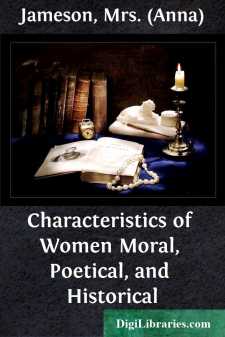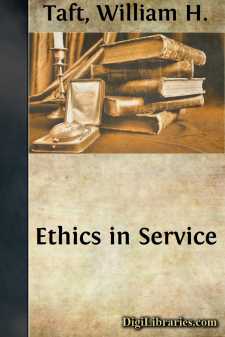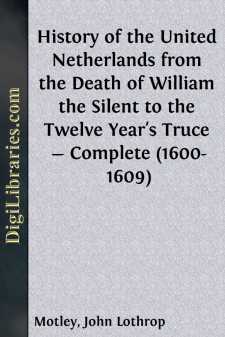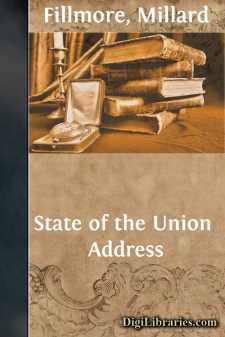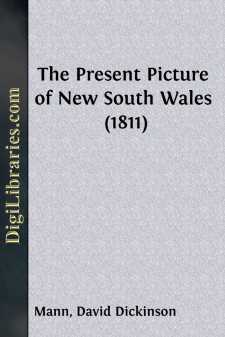History
- Africa 30
- Americas (North Central South West Indies) 50
- Ancient 68
- Asia 58
- Australia & New Zealand 8
- Canada 41
- Caribbean & West Indies 1
- Civilization 20
- Eastern Europe 12
- Europe 310
- Expeditions & Discoveries 60
- General 77
- Historical Geography 1
- Jewish 9
- Latin America 3
- Medieval 8
- Middle East 13
- Military 248
- Revolutionary 8
- Study & Teaching 5
- United States 353
- Western Europe 56
- World 13
History Books
Sort by:
CHARACTERISTICS OF WOMEN. INTRODUCTION. Scene—A Library. ALDA. You will not listen to me? MEDON. I do, with all the deference which befits a gentleman when a lady holds forth on the virtues of her own sex.He is a parricide of his mother's name,And with an impious hand murders her fame,That wrongs the praise of women; that dares writeLibels on saints, or with foul ink requiteThe milk they lent...
more...
by:
William H. Taft
CHAPTER I HISTORY OF THE PROFESSION OF LAW It is not too much to say that the profession of the law is more or less on trial. It is certain that there is a crisis in the life of our courts, and that a great political issue is being forced upon the people, for they must decide whether the courts are to continue to exercise the power they now have, and what character of service they shall be required to...
more...
The making of harpsichords flourished in Italy throughout the 16th and 17th centuries. The Italian instruments were of simpler construction than those built by the North Europeans, and they lacked the familiar second manual and array of stops. In this paper, typical examples of Italian harpsichords from the Hugo Worch Collection in the United States National Museum are described in detail and...
more...
The effect produced in the republic by the defensive and uneventful campaigning of the year 1599 had naturally been depressing. There was murmuring at the vast amount of taxation, especially at the new imposition of one-half per cent. upon all property, and two-and-a-half per cent. on all sales, which seemed to produce so few results. The successful protection of the Isle of Bommel and the judicious...
more...
INTRODUCTION TO THE REVISED VOLUME II. The second volume of the American Eloquence is devoted exclusively to the Slavery controversy. The new material of the revised edition includes Rufus King and William Pinkney on the Missouri Question; John Quincy Adams on the War Power of the Constitution over Slavery; Sumner on the Repeal of the Fugitive Slave Law. The addition of the new material makes necessary...
more...
by:
Millard Fillmore
Fellow-Citizens of the Senate and of the House of Representatives: Being suddenly called in the midst of the last session of Congress by a painful dispensation of Divine Providence to the responsible station which I now hold, I contented myself with such communications to the Legislature as the exigency of the moment seemed to require. The country was shrouded in mourning for the loss of its venerable...
more...
CHAPTER III. THE GRADATIONS OF OFFICIAL RANK IN THE LATER EMPIRE.Official Hierarchy introduced by Diocletian.It is well known that Diocletian introduced and Constantine perfected an elaborate system of administration under which the titles, functions, order of precedence, and number of attendants of the various officers of the Civil Service as well as of the Imperial army were minutely and...
more...
by:
R. W. Allen
Chapter I INTRODUCTION: THE EMPIRE AND ITS DEFENDERS The war in South Africa has been fruitful of A many results which will leave their mark upon the national life and character, and in which we may wholly rejoice. Amongst them none are more admirable than the awakening to the duty we owe to our soldiers and sailors, and the large-hearted generosity with which the whole empire is endeavouring to...
more...
Chapter I.Discovery of New South Wales.--Arrival of a Colony there from England.-- Obstructions calculated to retard the Progress of the Settlement.-- Departure of Governor Phillip.--Intervening Governors, until the Arrival of John Hunter, Esq. and his Assumption of the Government.-- Printing Press set up.--Cattle lost, and Discovery of their Progeny in a wild State.--Playhouse opened.--Houses...
more...
by:
Thomas Carlyle
Chapter I.—PRELIMINARIES TO A FOURTH CAMPAIGN. The posting of the Five Armies this Winter—Five of them in Germany, not counting the Russians, who have vanished to Cimmeria over the horizon, for their months of rest—is something wonderful, and strikes the picturesque imagination. Such a Chain of Posts, for length, if for nothing else! From the centre of Bohemia eastward, Daun's Austrians are...
more...


